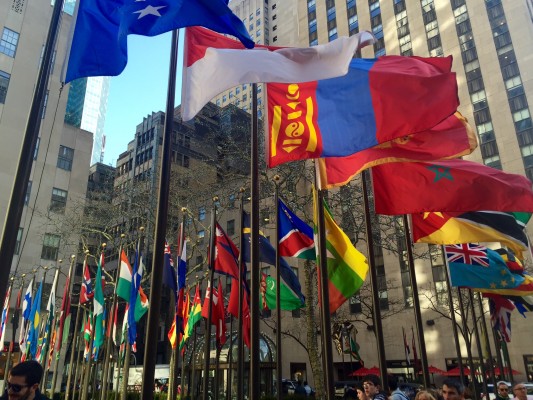Should Non-Citizens be Allowed to Vote in New York City Municipal Elections?
April 22, 2015
On June 16, 2014, New York State Senator Gustavo Rivera introduced a bill that would allow non-citizens to vote in New York City elections. The bill would allow legal immigrants who have lived in America for just six months to cast a ballot for local elections: including elections for the mayor, the comptroller, the public advocate, members of the council, and borough presidents. Out of the 1.3 million immigrants in New York City, 800,000 are eligible voters by the new proposed voting bill, which could significantly change the turnout of municipal elections considering the 4.3 million registered voters in New York City and the low voter turnout for local elections. This bill would make New York City the first major city to allow non-citizens to vote.
In a democratic nation, voting is one of the most important rights we are granted as citizens. Throughout American history, men and women have marched, fought, and died for the right to vote. Giving immigrants who have lived in America for just six months the right to vote is offensive to the millions of Americans who have worked hard to gain citizenship and completely goes against the ideals of which this country was built upon. Mayor Bloomberg’s spokeswomen, Evelyn Erskine, stated, “The mayor believes voting is the most important right we are granted as citizens and you should have to go through the process of becoming a citizen and declaring allegiance to this country before being given that right.”
This proposed voting bill bypasses all of the important requirements to becoming an American Citizen. Under the bill, non-citizens will be able to vote even if they are unfamiliar with the English language and do not have any knowledge of American civics or history–the only requirement is that you must have lived in America for six months. Six months is hardly enough time to acclimate into a country and most definitely not enough time to make an informed vote. It is incredibly unlikely that people who have just arrived in the country will be well-informed on politics and therefore should not be able to hold the fate of such crucial decisions in their hands.
Although there are economic and travel benefits to becoming a citizen, voting is one of the most crucial reasons that so many immigrants living in America seek citizenship. Giving non-citizens the right to vote before becoming citizens is likely to diminish all interest in progressing through the citizenship process. Councilman Eric Ulrich (R-Queens) said in opposition of the bill, “the right to vote is a privilege and a sacred obligation that citizens have enjoyed. It should only be for United States citizens. [It is] a reason for people who are on a path to citizenship to aspire to citizenship.”
While many supporters of the bill claim the bill is a stride towards a greater inclusion and participative democracy, it is important to acknowledge that there are many political motivations behind adding new voters. Queens College Professor and author on immigrant voting Ron Hayduk notes the political motivations of adding new voter blocks, stating that the proposed bill is “part plain arithmetic, part electoral calculus, if there’s a potential 1 million new voters, the candidates and the parties might want to capitalize on that potential and attract those folks to them.”
It is no coincidence that many of the biggest supporters of the bill represent districts with high immigrant populations such as Daniel Dromm (D-Queens), who has stated that allowing non-citizens to vote would “make communities like mine more important to city-wide and state officials.” Representative Dromm also said, “I don’t see how you call something a democracy when you don’t give everybody that opportunity to participate.” However, there are plenty of ways for non-citizens to participate in democracy. Non-citizens can be active in their community politics through attending community board meetings, becoming involved in local civic associations, and grassroots campaigning.
While the proposed voting bill may help benefit particular districts and representatives, granting non-citizens the right to vote in New York City could set a precedent for the rest of the country and encourage other cities for similar legislation. This would be extremely detrimental to the nationalization process in America and could give more political influence to immigrants than American citizens in certain places. I hope that New York representatives will vote against the bill to reserve the right to vote for American citizens.










